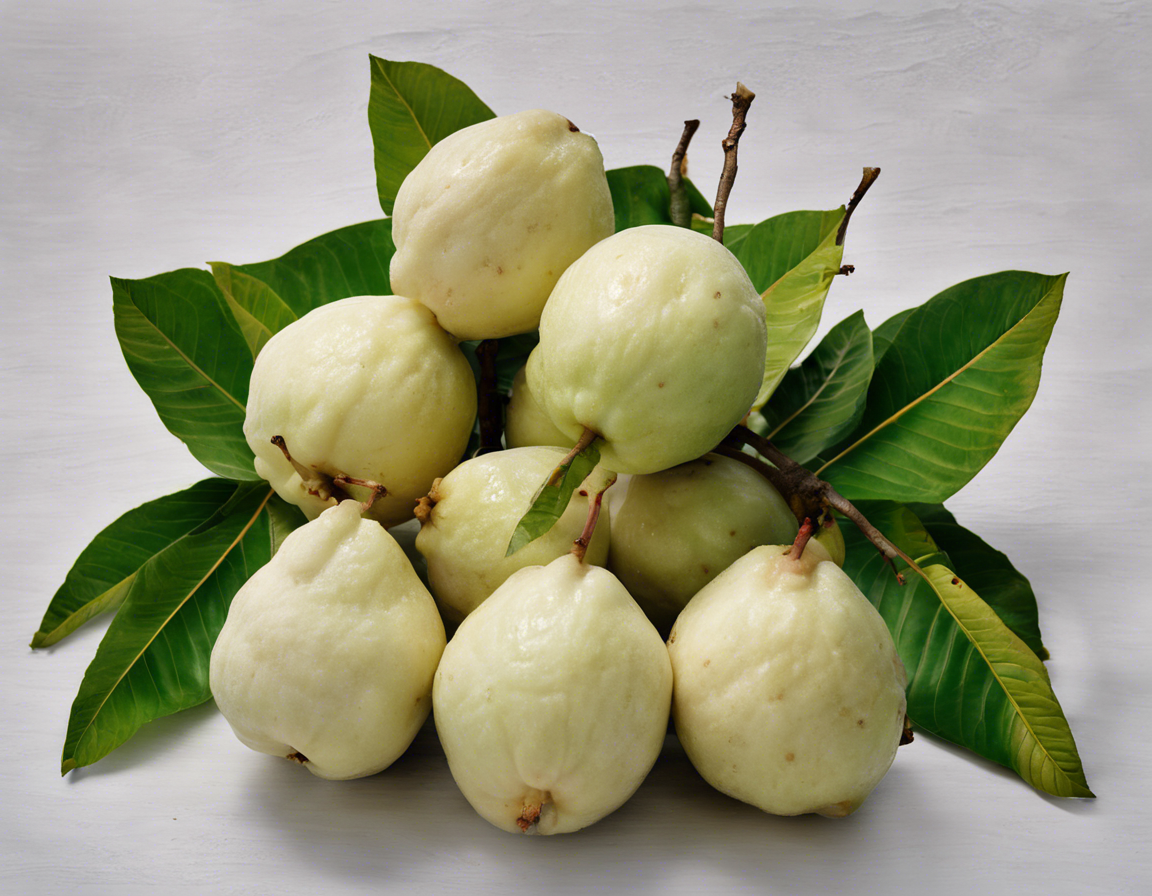White guava is a tropical fruit that is not as popular as its more common pink or red counterpart but offers a unique and exotic flavor experience that is worth exploring. White guava, also known as Psidium guajava, is a species of guava that is native to tropical regions of the Americas but is now grown in various parts of the world. In this comprehensive guide, we will delve into the enticing world of white guava, exploring its flavor profile, nutritional benefits, culinary uses, and more.
The Flavor Profile of White Guava
White guava is known for its sweet and fragrant aroma, with a flavor that can be described as a blend of pear, banana, and passion fruit. The flesh of the white guava is creamy and soft, with a texture that is slightly grainy, akin to a ripe pear. The taste of white guava is often considered more subtle and mild compared to its pink or red counterparts, making it a versatile ingredient in both sweet and savory dishes.
Nutritional Benefits of White Guava
White guava is not only delicious but also packed with essential nutrients that offer a range of health benefits. This tropical fruit is a rich source of dietary fiber, vitamin C, vitamin A, potassium, and antioxidants. The high vitamin C content in white guava makes it a potent immune booster, while the fiber content aids in digestion and supports gut health. Additionally, the antioxidants in white guava help combat oxidative stress and inflammation in the body.
Culinary Uses of White Guava
White guava can be enjoyed in a variety of culinary applications, adding a unique twist to both sweet and savory dishes. Here are some creative ways to incorporate white guava into your cooking:
Sweet Dishes:
- White Guava Smoothie: Blend white guava with yogurt, honey, and a splash of coconut milk for a refreshing tropical smoothie.
- White Guava Sorbet: Freeze white guava puree with a touch of lime juice for a delightful and light dessert.
- White Guava Tart: Use white guava slices as a topping for a classic tart or pie for a fruity twist.
Savory Dishes:
- White Guava Salsa: Dice white guava and mix with onions, cilantro, jalapeno, and lime juice for a flavorful salsa to pair with grilled fish or chicken.
- White Guava Chutney: Cook white guava with spices, vinegar, and sugar to create a tangy and sweet chutney that pairs well with cheese or roasted meats.
How to Select and Store White Guava
When selecting white guavas, look for fruits that are firm yet yield slightly to pressure. Avoid fruits with bruises or soft spots. White guavas can be stored at room temperature until ripe, after which they should be refrigerated to prolong their freshness. Ripe white guavas will give off a sweet aroma and yield to gentle pressure.
Growing White Guava at Home
If you have a green thumb and a passion for tropical fruits, consider growing white guava at home. White guava trees are relatively easy to grow in warm and humid climates, requiring full sun and well-drained soil. These trees can be grown in containers in cooler climates and brought indoors during the colder months. With proper care and attention, you can enjoy a bountiful harvest of white guavas in your own backyard.
Frequently Asked Questions (FAQs) About White Guava
1. How does white guava differ from pink guava in terms of flavor?
White guava has a milder and more subtle flavor compared to pink guava, with notes of pear, banana, and passion fruit. Pink guava tends to be more aromatic and tangy in taste.
2. Is white guava high in sugar?
White guava contains natural sugars like fructose and glucose, but it is not excessively high in sugar. It is a healthier alternative to processed sweets.
3. Can you eat the skin of white guava?
The skin of white guava is edible, but it can be tough and bitter. It is best to peel the skin before consuming the fruit or cooking with it.
4. Are there any health benefits to consuming white guava?
Yes, white guava is rich in vitamin C, fiber, and antioxidants, which offer immune-boosting, digestive, and anti-inflammatory benefits.
5. How can I ripen white guavas quickly?
To ripen white guavas quickly, place them in a paper bag with a banana or apple. The ethylene gas produced by the ripe fruit will speed up the ripening process of the guavas.
In conclusion, white guava is a tropical fruit with a distinct flavor profile that lends itself well to a variety of culinary creations. Whether enjoyed fresh as a snack, blended into smoothies, or incorporated into savory dishes, white guava offers a delightful eating experience packed with nutritional benefits. So next time you come across this exotic fruit, be sure to give it a try and savor the unique flavors of white guava.
